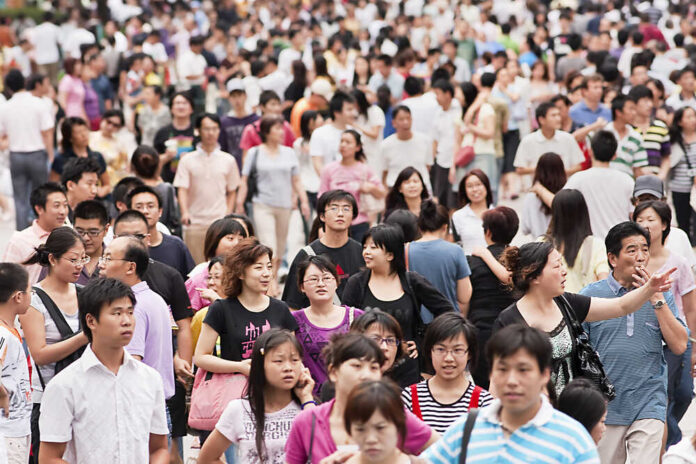
(HorizonPost.com) – According to researchers from Victoria University in Melbourne, Australia, China’s population could shrink to only 525 million by the end of the 21st Century, the Wall Street Journal reported.
It was reported in January that China’s population fell in 2023 to 1.409 billion people, a decrease of 2.08 million compared to 2022 when China experienced its first population decline in 60 years. Last year’s decline was double that of 2022.
According to Xiujian Peng, a senior research fellow at Victoria University, China’s population decline in both 2022 and 2023 was worse than their forecasts. Based on the university’s joint research with the Shanghai Academy of Social Sciences, if China remains on this trajectory, its population could drop to just 525 million by the end of the 21st Century.
By comparison, the United States is forecast to reach 370 million people by 2080 before the population begins to slowly decline to 366 million by the end of the century. If immigration increases, the US population could expand to 435 million by the end of the 21st Century.
However, even if the US population closes out the century with only 366 million people, China’s depopulation reaching 525 million by the end of the 21st Century would mean that it would no longer outnumber the United States by four to one as it does today.
China’s depopulation was expected given the country’s record-low birthrate and the shortage of women of childbearing age.
According to the Wall Street Journal, there were over 3 million fewer childbearing women in 2023 than the previous year, and the young women who could bear children are “increasingly reluctant” to do so.
Part of the problem was China’s former One Child policy enacted in the 1980s, which incentivized couples to favor male babies over females, resulting in a sharp increase in aborted girls.
Beijing lifted the policy in 2015 to try to pull out of its plunge in population and offered additional incentives to people to encourage them to start families. However, so far, those changes have had little impact on population growth as young people who mostly live in urban areas are delaying have families due to the high cost of living.
Copyright 2024, HorizonPost.com














